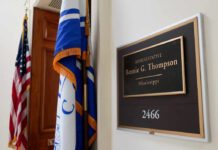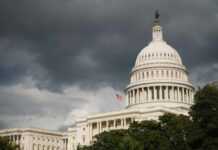
Michigan’s Supreme Court has undertaken the critical task of deliberating whether the government has the authority to conduct drone surveillance on private properties without obtaining a warrant.
Michigan Supreme Court to decide limits of warrantless drone surveillance https://t.co/2qZBifMpvw
— Just the News (@JustTheNews) May 25, 2023
The case at hand centers around Long Lake Township in northern Michigan, where local zoning officials embarked on a two-year campaign of utilizing drones to capture photographs and videos of Todd and Heather Maxon’s property amidst an ongoing zoning dispute.
The Institute for Justice (IJ), a notable public interest law firm, contends the government’s employment of warrantless drone surveillance to capture images of Todd Maxon’s 5-acre property constitutes a violation of the Fourth Amendment.
According to the IJ, this intrusive surveillance and the subsequent usage of the gathered information in court undermine the core purpose of the Fourth Amendment, which is to safeguard individuals against unwarranted snooping.
The legal battle between the Maxons and the government has been ongoing for several years, with officials persistently attempting to implicate the couple in zoning violations. The lawsuit asserts that the government conducted multiple drone flights over their property for a period of two years without obtaining a warrant.
In 2018, the government once again cited Todd Maxon, this time utilizing a drone operator at a cost of $1,200. The government now seeks to employ the collected photos and videos as evidence in a zoning enforcement lawsuit, aiming to penalize the couple for the alleged infractions.
Todd Maxon expressed his firm belief in the right to privacy and the sanctity of one’s property, stating, “Like every American, I have a right to be secure on my property without being watched by a government drone.”
In a contentious ruling in September 2022, the Michigan Court of Appeals held that even if the drone flights violated the Maxons’ Fourth Amendment rights, the evidence obtained from the unconstitutional search could still be utilized in court.
The court asserted that the Fourth Amendment’s protections do not extend to investigators conducting searches for zoning code violations. If this ruling is upheld, it would give the government free reign to engage in surveillance activities.




























